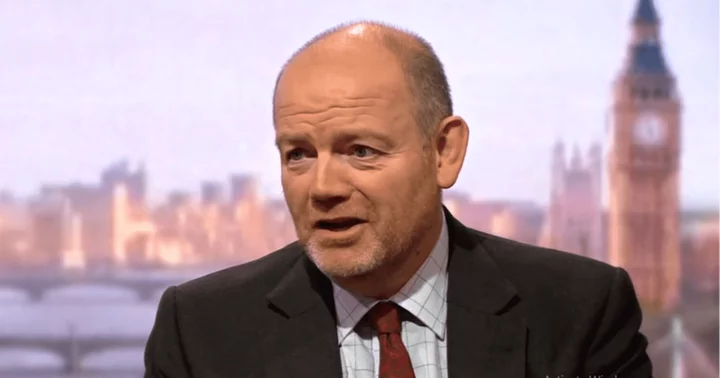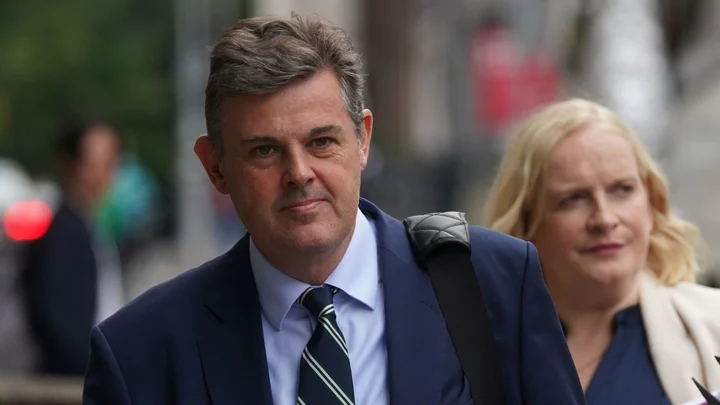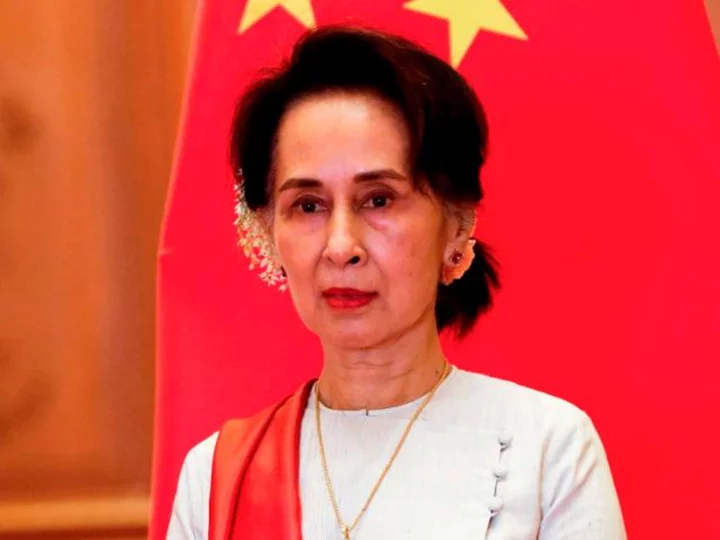LOS ANGELES, CALIFORNIA: Warner Bros Discovery is reportedly considering Mark Thompson, the former chief executive of The New York Times and head of the BBC, to lead CNN.
Chris Licht, the previous boss, left the role in June, and since then, CNN has been under the interim leadership of experienced network leaders. Thompson, 66, a respected British media executive, is being considered for the position, according to Daily Mail.
Mark Thompson Controversies
Mark Thompson's tenure as director-general of the BBC was marked by various controversies and challenges. Here are some of the notable controversies he was involved in:
Editorial Guideline Breaches
During Thompson's leadership, the BBC faced editorial guideline breaches that compromised the values of accuracy and honesty. Thompson investigated these breaches and presented his interim report to the BBC Trust in 2007. He took actions to restore confidence in the organization's journalistic integrity.
Russell Brand Show Prank Call Row
In 2008, Thompson had to deal with the aftermath of 'The Russell Brand Show' prank telephone calls row. He suspended BBC's highest-paid presenter, Jonathan Ross, from all work for three months without pay, citing the need for disciplinary action.
Political Bias Acknowledgment
Thompson acknowledged in 2010 that there had been a left-leaning bias in some parts of the BBC's current affairs reporting during his early career. He noted the organization's struggle with impartiality and bias.
'Jerry Springer: The Opera' Blasphemy Allegations
Thompson faced criticism from religious groups over the broadcast of 'Jerry Springer: The Opera'. The BBC was even prosecuted for blasphemy. The High Court ruled that the musical was not blasphemous, emphasizing the importance of freedom of expression.
Accusations of Pro-Israeli Editorial Stance
Thompson was accused by some commentators of having a pro-Israeli editorial stance. This accusation gained attention when the BBC decided not to broadcast the DEC Gaza appeal in 2009. Critics argued that this decision demonstrated bias.
Hutton Inquiry and Resignation of Greg Dyke
One of the major controversies during Thompson's time as director-general was the fallout from the Hutton Inquiry. The inquiry investigated the death of government weapons expert Dr David Kelly and criticized the BBC's reporting on the Iraq War.
The Hutton Controversy, in 2003, involved the BBC and the UK government over a report suggesting the government exaggerated Iraq's threat.
The UK government denied the claim, and an inquiry led by Lord Hutton, a senior judge, found the report flawed, cleared the government of wrongdoing, and led to BBC resignations.
Following the inquiry, Greg Dyke, the BBC's chairman, and Gavyn Davies, the director of BBC, resigned. Thompson had to navigate the aftermath of these resignations and the subsequent criticism of the BBC's journalistic integrity.
Nick Griffin Question Time Appearance
In 2009, Thompson defended the BBC's decision to invite British National Party leader Nick Griffin to appear on the 'Question Time' program. This led to debates about the boundaries of free speech and the role of the BBC in providing a platform.
Executive Pay Controversy
Thompson's salary as the highest-paid employee of any public sector organization in the UK garnered attention and criticism. This led to debates about executive pay within the BBC.
Some executives received substantial severance payments, leading to public outcry and discussions about the appropriateness of such payments, especially in the context of budget constraints and austerity measures.
Formula 1 Broadcast Rights
Under Thompson's leadership, the BBC announced changes to its Formula One broadcast coverage in 2011, leading to backlash from fans and questions from the House of Commons.
Jimmy Savile Controversy
Thompson faced questions about his role in the events surrounding Jimmy Savile's sexual abuse scandal and the BBC's coverage of it. He denied knowing about a dropped 'Newsnight' program on the accusations against Savile.
Digital Media Initiative (DMI) Failure
Thompson faced criticism over the failure of the BBC's Digital Media Initiative, a project aimed at modernizing the BBC's production and archiving processes. The project was ultimately abandoned after significant investment, leading to concerns about financial mismanagement.
Thompson's leadership received both praise and criticism. Some lauded his directorship, while others criticized the BBC's programming choices and accused it of straying from its reputation for quality and integrity.
Mark Thompson's Career Journey
Mark Thompson led The New York Times from 2012 to 2020, overseeing its shift to digital. His extensive career started at the British Broadcasting Corporation (BBC), where he entered in 1979 as a production trainee.
Over time, he ascended through the ranks, taking on prominent positions such as editor of the 'Nine O'Clock News' and 'Panorama'. Later, he assumed the role of director of television at the BBC.









